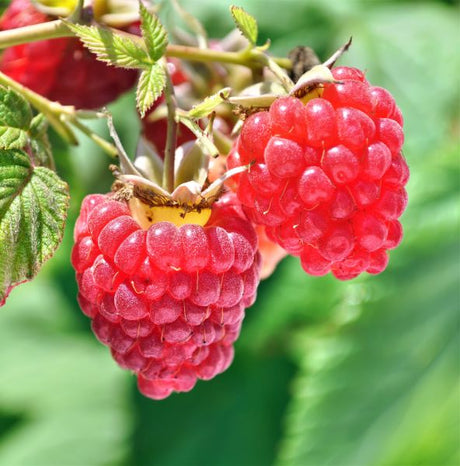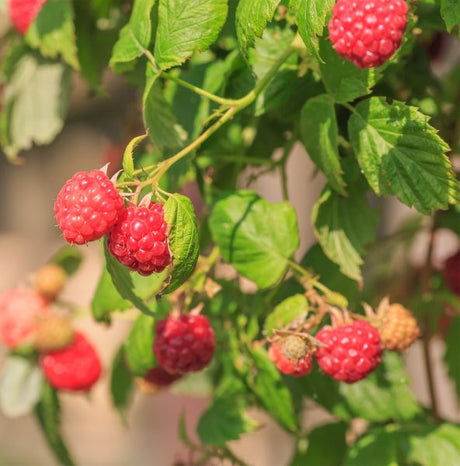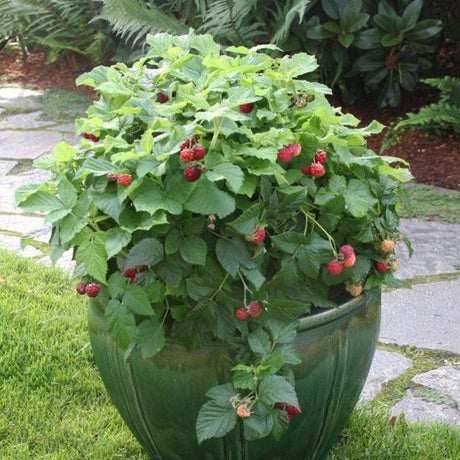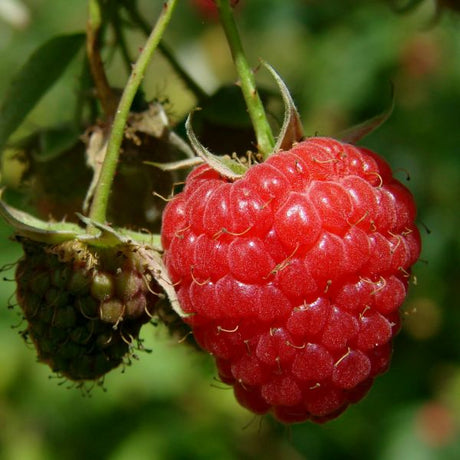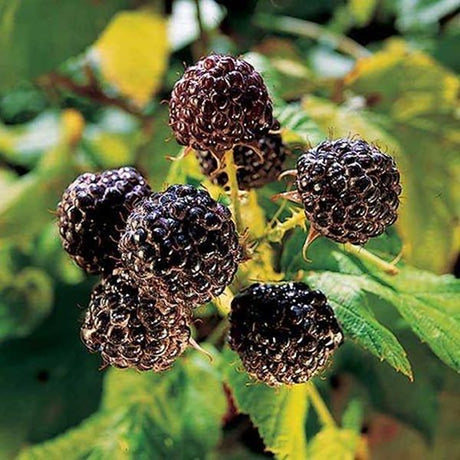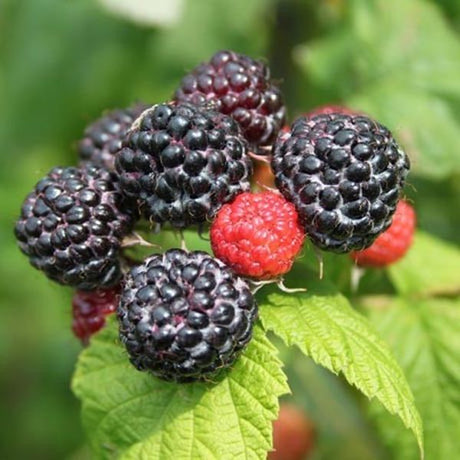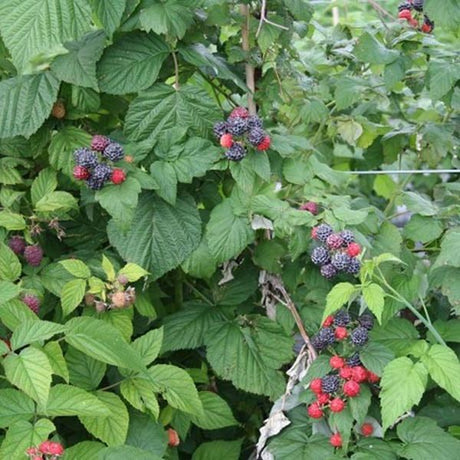-
Rubus idaeus var. strigosus 'Heritage'
PreorderRegular price $3900Unit price /Unavailable -
-
-
Rubus idaeus 'Boyne'
Sold outRegular price From $9127Unit price /Unavailable -
Rubus idaeus 'Latham'
Sold outRegular price From $5973Unit price /Unavailable -
-
Rubus occidentalis 'Bristol'
Sold outRegular price $5460Unit price /Unavailable -
-
Rubus idaeus var. strigosus 'Fall Gold'
Sold outRegular price From $5496Unit price /Unavailable -
Rubus idaeus 'Caroline'
Sold outRegular price From $9136Unit price /Unavailable -
-
Rubus idaeus 'Vintage'
Sold outRegular price $5960Unit price /Unavailable -
-
Rubus idaeus var. strigosus 'Willamette'
Sold outRegular price $3454Unit price /Unavailable -
FAQ's for Buying Raspberry Plants Online
What is the difference between red, black, and gold Raspberry bushes?
What is the difference between red, black, and gold Raspberry bushes?
Red Raspberry bushes are the most common and produce sweet, tangy berries great for fresh eating and preserves. Black Raspberries, like Jewel, are rich in antioxidants and offer a deep, earthy flavor. Gold varieties, like Fall Gold, stand out with their rare color and milder sweetness. All are easy to grow and add vibrant variety to your berry patch.
Do Raspberry plants need full sun to produce fruit?
Do Raspberry plants need full sun to produce fruit?
Raspberry plants thrive in full sun and produce the best fruit when they receive at least six hours of direct sunlight per day. Some varieties, like Jewel, tolerate partial shade, but optimal fruit yield and flavor come with consistent sunlight and well-drained soil.
How long does it take for Raspberry bushes to bear fruit?
How long does it take for Raspberry bushes to bear fruit?
Most Raspberry bushes begin producing fruit in their second year, with some everbearing varieties giving a small harvest in their first season. Once established, they provide generous crops year after year with very little maintenance. Prune regularly and provide consistent moisture for the best results.
Are Raspberries healthy to eat?
Are Raspberries healthy to eat?
Yes, Raspberries are packed with vitamin C, antioxidants, and fiber while being low in fat, sodium, and calories. These berries are heart-healthy and support digestion, making them a delicious and nutritious addition to your diet. They’re also versatile in the kitchen, perfect for fresh snacks, smoothies, jams, or baked goods.
Can Raspberry bushes grow in containers?
Can Raspberry bushes grow in containers?
Yes, many Raspberry varieties grow well in containers, especially compact types like the Raspberry Shortcake bush. Choose a large pot with good drainage and use rich, loamy soil. Keep the plant in a sunny spot and water consistently. Container-grown berries are perfect for patios, balconies, and small-space gardens.






